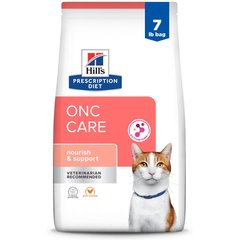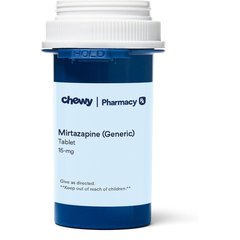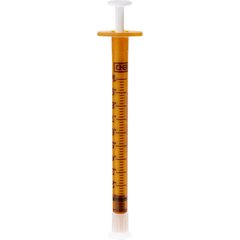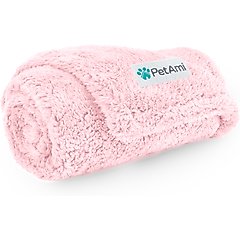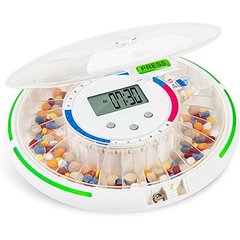What Is Cancer in Cats? What Are the Signs?
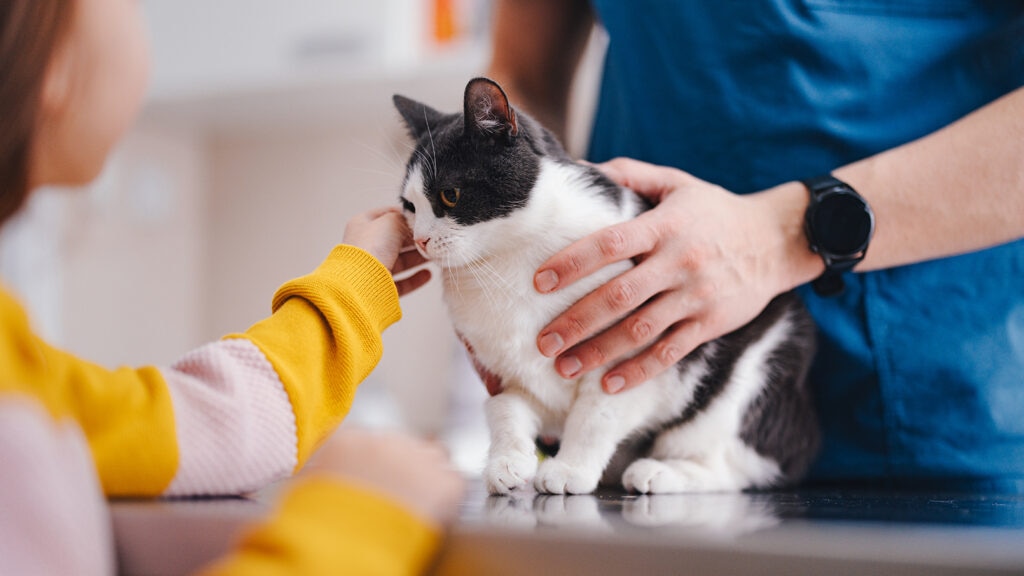
Photo by miniseries/E+ via Getty Images
Cancer in cats is a serious and fairly common condition, especially in older cats. Some cancers progress slowly, while others are more aggressive, but all require prompt veterinary care.
We spoke with two veterinarians to understand how cancer develops in cats, what signs to look for, and what to expect when it comes to diagnosis, treatment, and prognosis.
If you notice any unusual symptoms in your cat, consult your veterinarian as soon as possible.
What Is Cancer in Cats?
Cancer in cats, also known as feline cancer, occurs when abnormal cells in the body begin to grow and divide uncontrollably. These cells can form tumors in cats, which may be benign (non-cancerous) or malignant (cancerous). Malignant tumors have the potential to invade nearby tissues and spread to other parts of the body—a process called metastasis.
Each year, an estimated 6 million cats in the US are diagnosed with cancer, with 53–85% of tumors determined to be malignant.
While cancer is more common in older cats, it can affect younger ones too. According to Brolin Evans, DVM, DACVIM-O, and veterinary oncologist at Arista Advanced Pet Care in Atlanta, Georgia, roughly one-third of cats over age 10 will develop cancer.
Types of Cancer in Cats
Feline cancer can affect almost any part of the body, including the skin, lymph nodes, gastrointestinal tract, blood, and organs, such as the liver or lungs.
Here are some of the most common types:
- Lymphoma: The most common type of feline cancer, lymphoma affects lymphocytes (a type of white blood cell) found in lymphoid tissues throughout the body. In cats, it frequently involves the gastrointestinal tract, kidneys, and lymph nodes.
- Mastocytoma (mast cell tumor): These tumors develop from mast cells, which originate in the bone marrow and circulate through the body. In cats, mast cell tumors most commonly appear in the skin or spleen.
- Mammary tumors: These aggressive tumors affect the mammary (breast) tissue, often spreading to nearby lymph nodes and the lungs. They’re most common in unspayed female cats.
- Osteosarcoma: A type of bone cancer that primarily affects the limbs or jaw. It tends to be painful and locally aggressive.
- Melanoma: These tumors often present as raised, pigmented masses that may ulcerate or bleed. Melanomas in cats can affect the skin, eyes, or mouth.
- Squamous cell carcinoma (SCC): The most common skin cancer in cats, SCC is a fast-growing tumor often linked to sun exposure. It typically affects the ears, nose, or mouth.
What Are the Signs of Cancer in Cats?
Cancer symptoms in cats can vary depending on the type and location of the tumor.
Some common signs include:
- Abdominal swelling
- Bleeding from the mouth, nose, or other body openings
- Difficulty breathing
- Difficulty eating
- Bad breath
- Lumps, bumps, or discolored skin
- Non-healing wounds
- Weight gain or loss
- Unexplained swelling, heat, pain, or lameness
- Visible mass (tumor)
- Blood in urine or feces
- Vomiting
- Diarrhea
What Causes Cancer in Cats?
While the exact cause of cancer in cats isn’t always known, several factors may increase a cat’s risk of developing the disease, including:
- Age: Older cats are more likely to develop cancer, as cellular damage can accumulate over time, explains Dr. Evans.
- Viral infections: Viruses such as feline leukemia virus (FeLV) and feline immunodeficiency virus (FIV) are linked to an increased cancer risk, especially lymphoma, Dr. Evans says.
- Sun exposure: Repeated sun exposure can damage a cat’s skin and lead to squamous cell carcinoma, a type of skin cancer that often appears on exposed areas such as the ears, nose, and eyelids.
- Exposure to toxins: Carcinogens found in things like tobacco smoke, pesticides, and long-term use of tetrachlorvinphos-containing flea collars have been linked to a higher risk of certain cancers in cats, Dr. Evans says.
- Injections and vaccinations: Inflammation at injection sites can lead to feline injection-site sarcomas (FISS), a rare but aggressive type of cancer, Dr. Evans says.
- Hormonal influences: Unspayed female cats are at higher risk for mammary tumors, especially if they’re not spayed before their first heat cycle.
- Breed: There’s limited data on breed-specific cancer risk in cats, but Siamese are the exception—they’re more prone to mammary, intestinal, and mast cell tumors and lymphoma, Dr. Evans says.
How Do Vets Treat Cancer in Cats?
Depending on your cat’s symptoms and the suspected location of the cancer, your vet might recommend one or more of the following to diagnose it:
- Physical exam: Vets feel and look for lumps, swelling, or signs of discomfort during a hands-on exam.
- Blood tests: These are used to assess overall health and check for abnormalities that might indicate cancer.
- Endoscopy: A small camera is inserted through the mouth or rectum to get a clear view of the stomach or intestines.
- X-rays: Your vet can use these to view your cat’s chest, abdomen, or limbs.
- Ultrasound: This imaging provides a real-time look at soft tissue structures, such as organs or lymph nodes.
- Computed tomography (CT): CT produces detailed cross-sectional images of your cat’s internal structures using advanced computer imaging.
- Magnetic resonance imaging (MRI): This provides highly detailed images of your cat’s internal structures using magnetic fields and radio waves.
If a tumor is discovered, your vet might take a sample to examine its cells. This can be done using fine needle aspiration or a biopsy.
Treatment for cancer in cats depends on the type, location, and stage of the disease. According to Dr. Evans, your vet might recommend one or a combination of the following approaches:
- Surgery: Surgery is often used to remove tumors that are close to the skin’s surface or confined to a single area.
- Radiation: Radiation therapy uses focused beams to destroy cancer cells and is often recommended for tumors that can’t be removed with surgery.
- Chemotherapy: Chemotherapy, given by injection or in pill form, is used to kill cancer cells and is often recommended for cancers that have spread throughout the body.
- Electrochemotherapy: This treatment combines chemotherapy with electrical pulses to help the medication better penetrate tumor cells, increasing its effectiveness. This is relatively new and may not be widely available, depending on your location.
- Immunotherapy: Immunotherapy helps activate your cat’s immune system to fight cancer.
- Palliative care: This focuses on keeping your cat comfortable by managing pain and other symptoms when the end of life is near.
How Can I Help Manage My Cat’s Cancer at Home?
While your veterinarian will guide the medical treatment, there’s a lot you can do at home to support your cat’s comfort and well-being.
Provide a Nutritious, Vet-Recommended Diet
Cats with cancer often require high-calorie, easily digestible foods to maintain their weight and energy levels.
Ask your vet about veterinary-recommended cancer-supportive diets, such as Hill’s Prescription Diet ONC Care.
If your cat’s appetite is low, ask your vet about an appetite stimulant, like mirtazapine.
Recommended Products
Make Hydration Easy
Cats undergoing treatment may become dehydrated more easily, especially if they’re experiencing vomiting, diarrhea, or reduced appetite.
To encourage drinking, try a cat water fountain, like the PetNF Transparent Fountain.
Your vet might also recommend administering subcutaneous fluids (that go under the skin) at home.
Recommended Product
Create a Calm, Cozy Space
“Providing comfortable, quiet places to rest can help your cat’s quality of life,” says Megan McCarthy, staff veterinarian at Best Friends Animal Society, in Salt Lake City, Utah. “There are many orthopedic cat beds or heated beds available.”
A few pet parent favorites include the Bedsure Round Orthopedic Bolster Bed and K&H Pet Products Thermo-Kitty Heated Bed.
Keeping your cat’s environment calm and comfortable by minimizing noise, using calming aids like Feliway diffusers, and giving them plenty of gentle affection can also reduce stress.
Recommended Products
Stock Up on Supplies
Your vet can guide you on what your cat might need during their treatment or recovery. Here are some items that might come in handy:
- Oral syringes: For giving liquid medications
- Waterproof blanket: To protect furniture and bedding in case of accidents
- Pill pocket treats: To make giving pills less stressful (for you and your cat!)
- Soft recovery cone: To prevent licking or scratching after surgery
- Pet-safe bathing wipes: To keep your cat clean without the stress of a full bath
Recommended Products
Monitor for Changes
Keep a daily log of your cat’s symptoms, appetite, litter box use, and energy. Catching changes early can give your vet helpful insights for adjusting treatment.
Keep Up with Medications and Vet Visits
Follow your vet’s instructions carefully when it comes to medications and checkups.
Use a pet medication tracker or pill organizer to stay on top of your cat’s care routine.
Recommended Product
How Can I Prevent Cancer in My Cat?
Unfortunately, there’s no surefire way to prevent cancer in cats, but avoiding known risk factors can help lower the chances.
Dr. Evans shares a few key ways to reduce your cat’s risk:
- Avoid exposure to carcinogens. To the best of your ability, keep your cat away from harmful substances, such as cigarette smoke and pesticides.
- Spay early. Spaying female cats before 6 months of age reduces the risk of them developing mammary tumors.
- Keep your cat indoors. Indoor cats are less likely to be exposed to viruses like FIV.
- Test new cats for FeLV and FIV. Before introducing a new cat to your household, have them tested to prevent the potential spread of these viruses.
- Talk to your vet about vaccines. Dr. Evans recommends vaccinating for FeLV but says it should be given near the ankle of the back left leg. He also recommends using an adjuvant-free rabies vaccine. (Adjuvants are substances added to vaccines to improve their effectiveness. However, some studies indicate that such substances may increase the risk of sarcomas in cats.)
- Schedule regular vet visits. For adult cats, take your cat for a vet checkup once a year. For cats over 7 years of age, consider scheduling checkups every six months.
FAQs About Cat Cancer
Q: How do you know if your cat has cancer?
A: Common signs of cancer in cats include weight loss, lumps or bumps, changes in appetite, vomiting, diarrhea, lethargy, or difficulty breathing. If you notice anything unusual, take your cat to your vet.
Q: How long can cats live with cancer?
A: Life expectancy depends on the cancer type, stage, and when it’s diagnosed.
Dr. Evans notes that some cancers, such as small cell intestinal lymphoma, can often be managed for more than two years, while more aggressive forms may limit survival to six to eight months or less.
With some cancers, such as low-grade mast cell tumors, surgery alone can be curative.
Q: What is oral cancer in cats?
A: Oral cancer in cats refers to any malignant tumor that develops in the mouth, including the tongue, gums, jaw, or roof of the mouth. The most common type is squamous cell carcinoma.
Q: What is the most common cancer in cats?
A: According to Dr. McCarthy, lymphoma is the most common cancer in cats.
Attributions
This content was medically reviewed by Teresa Manucy, DVM, Chewy veterinarian.
